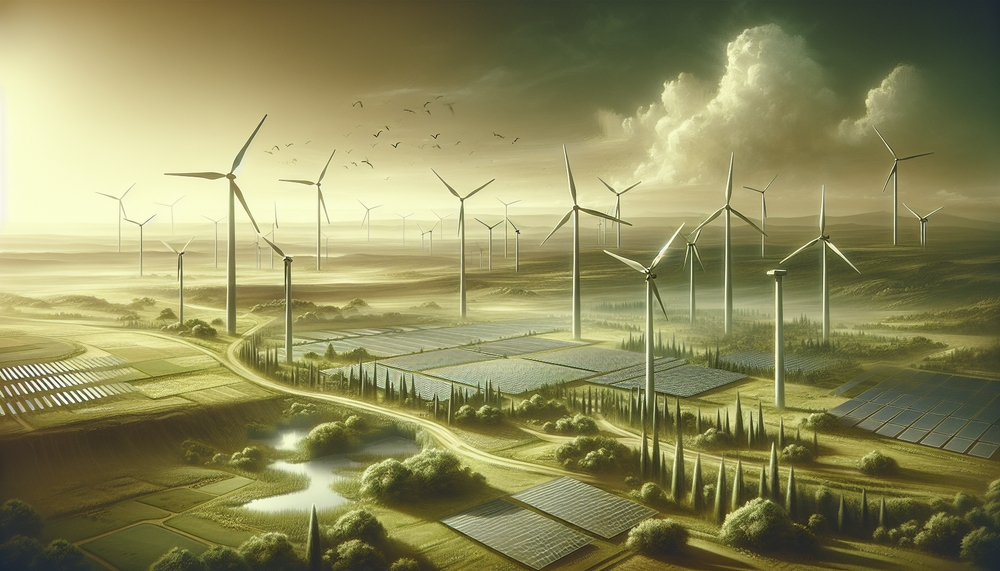A Critique of Germany’s Green Transition Strategy
Published
- 3 min read

Introduction: The Political Context
Germany stands at a pivotal juncture as it navigates the complexities of its green transition strategy amidst evolving political landscapes. With Friedrich Merz potentially at the helm as chancellor, Germany faces significant coalition talks that could redefine its approach to climate change and energy security. Merz’s policy perspectives, particularly his inclination towards pragmatic security and climate policies, diverge from the status quo, presenting a unique challenge to the prevailing green consensus. The current political climate in Germany, marked by a delicate balance of environmental ambition and economic pragmatism, sets the stage for a critical re-examination of the country’s green transition strategy.
The Economic Argument: Shortcomings of the Green Transition
While the green transition promises long-term sustainability and economic growth, immediate economic ramifications pose substantial challenges. Rapidly adopting clean energy technologies could expose foundational industries to financial burdens, exacerbate unemployment, and strain the country’s economic fabric. The focus on achieving ambitious environmental goals without accommodating the potential short-term economic shocks may overshadow the anticipated growth dividends. A recalibrated economic strategy that tempers enthusiasm with economic realism is essential to mitigate job losses and financial setbacks.
Geopolitical Risks: Is Energy Independence Feasible?
The ambition of achieving energy independence through renewables is frequently heralded as a cornerstone of Germany’s green strategy. However, this aggressive pursuit raises critical questions about feasibility, considering the country’s entrenched reliance on traditional fossil fuel systems and complex geopolitical networks. Europe’s geopolitical landscape, marked by volatile partnerships and energy dependencies, presents non-trivial challenges in disentangling existing alliances. The risk of over-reliance on renewables without a reliable backup can lead to energy vulnerabilities, emphasizing the necessity of a geopolitically informed energy policy.
Alternative Paths: Balancing Transition with Stability
Navigating Germany’s energy transformation requires balancing the urgency of the green transition with the imperative of economic and political stability. A synthesis of renewable and transitional energy sources, calibrated through incremental changes, might serve as a pragmatic path forward. This approach could help circumvent potential disruptions and ensure steady progress. Engaging in regional partnerships and adopting diverse strategies could foster a resilient energy framework that advances both sustainability goals and geopolitical considerations.
Merz’s Policy Vision: A Need for Pragmatism
The perception that Friedrich Merz’s potential leadership equates to a regression in climate action needs reevaluation. Instead, viewing Merz’s inclination towards revising existing frameworks through a pragmatic lens may yield innovative outcomes. Policies that encourage adaptive strategies and not rigid adherence to stringent benchmarks could bolster innovation. Merz’s vision promotes flexibility within Germany’s climate strategy, which could prove beneficial in navigating the complex transition towards a sustainable future.
Conclusion: Reassessing Germany’s Strategic Choices
As Germany stands on the cusp of transformative energy transitions, it is imperative to reassess its strategic choices. While the green transition remains pivotal in addressing climate challenges, reexamining methodologies to maintain economic stability and geopolitical coherence is crucial. Innovative yet pragmatic approaches should guide Germany’s climate policies, ultimately aligning sustainability aspirations with contemporary economic realities. Only through embracing adaptable yet resilient strategies can Germany hope to achieve its environmental goals without compromising its economic and geopolitical standing.
